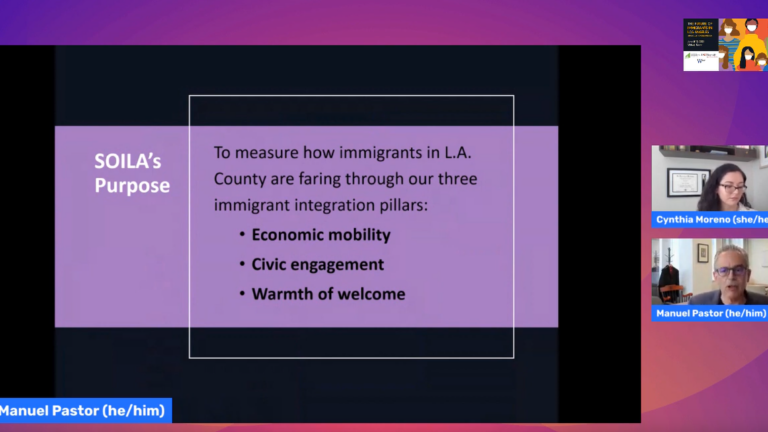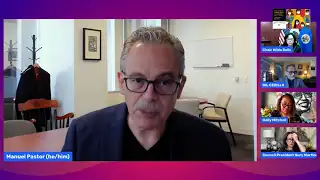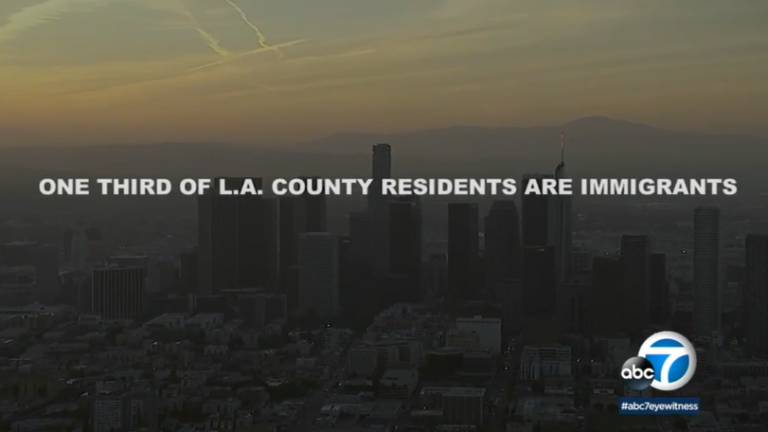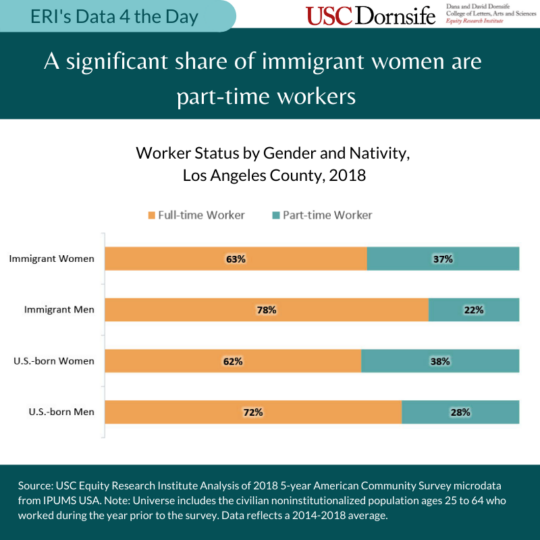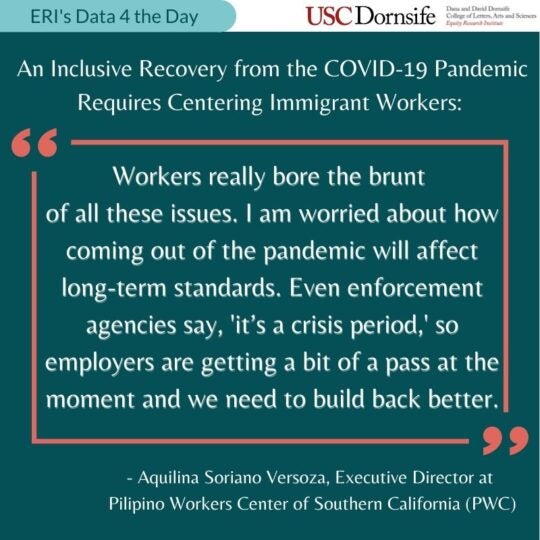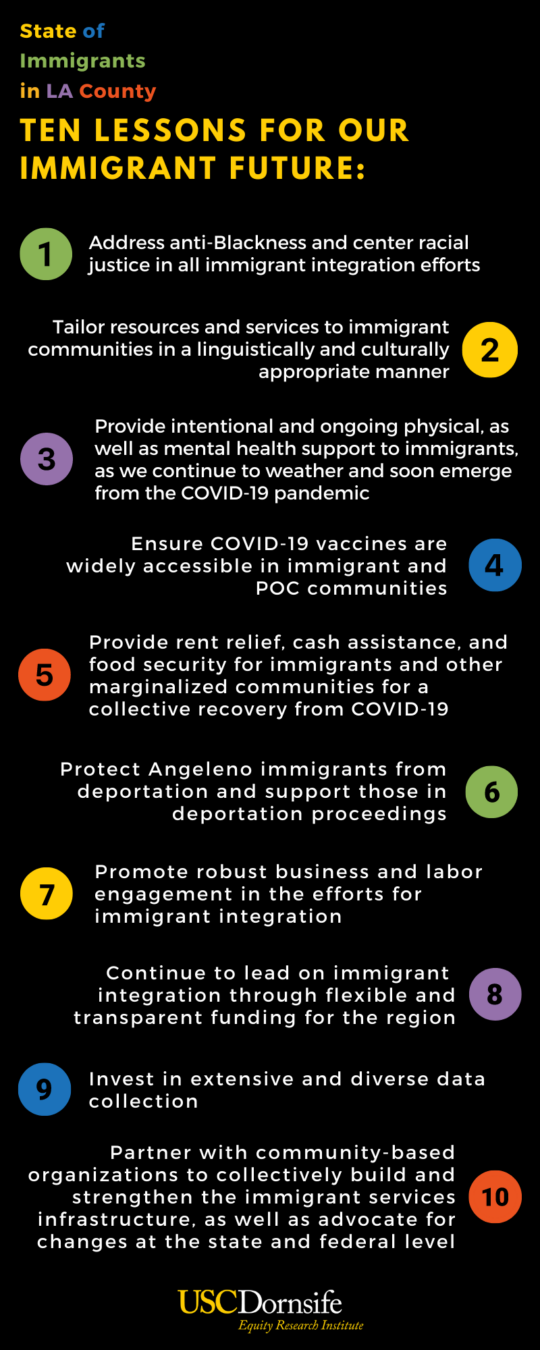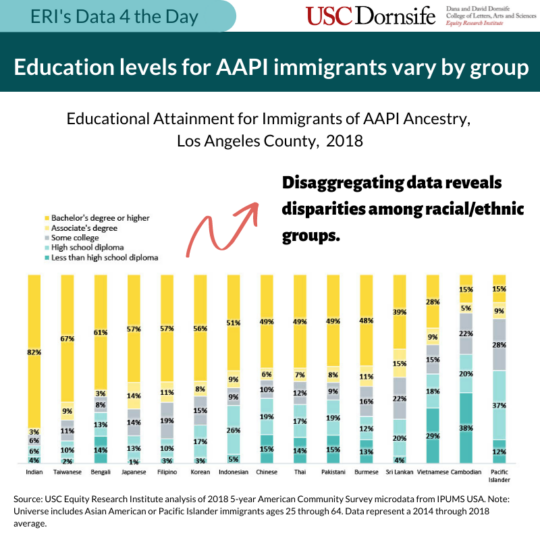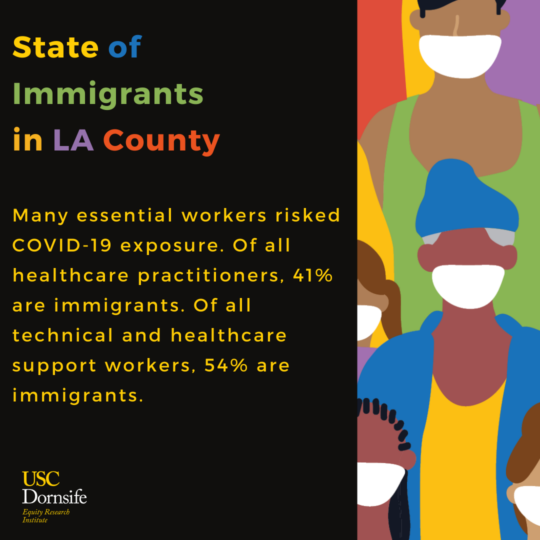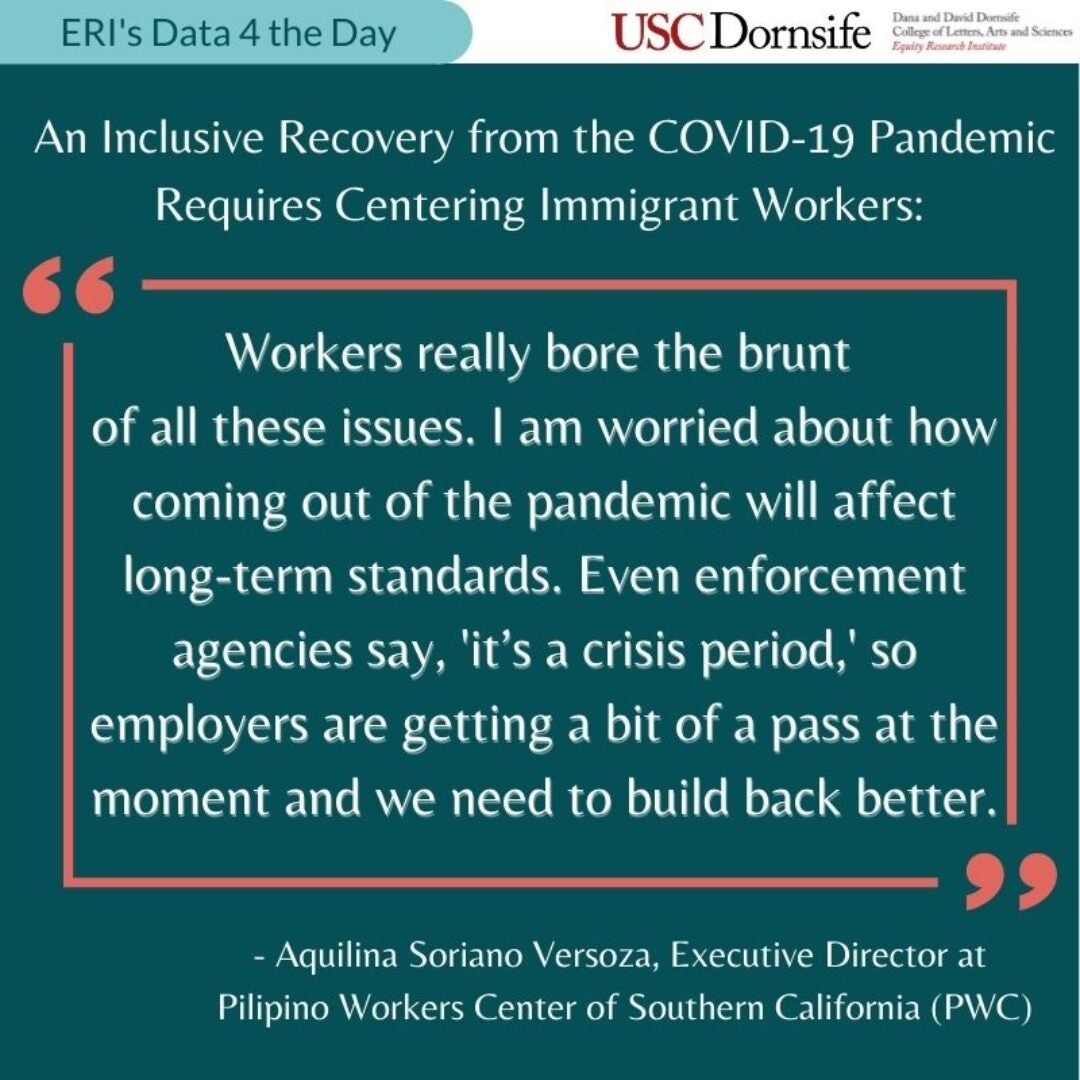June 8, 2021
By the USC Equity Research Institute and the California Community Foundation
Authors: Carolina Otero, Cynthia Moreno, Dalia Gonzalez, Emma Yudelevitch, Jeffer Giang, Manuel Pastor, Sabrina Kim, Sarah Balcha, and Thai Le

Immigrants are a vital and large part of L.A. County, and have played a critical role in helping L.A. weather through the COVID-19 pandemic. A large share of “essential” jobs in L.A. County are held by immigrant workers; however, immigrants are disproportionately affected by the consequences of this global pandemic. Immigrants, especially undocumented immigrants, disproportionately lack access to health insurance, are less likely to have a financial safety net, and are less digitally connected. The State of Immigrants in Los Angeles County (SOILA) 2021 builds on the framework from SOILA 2020 by making immigrant integration the focus while examining how the data is now colored by the various impacts of COVID-19.
Many Angelenos know how important and expansive L.A. immigrants are in our communities—not only for their large numbers, but inherently as people who choose to live their lives, follow their dreams, and provide for their families in L.A. County. Immigrant Angelenos deserve dignified relief to weather through the COVID-19 pandemic—relief that is funded by local, state, and federal governmental bodies and is in partnership with immigrant-serving organizations. As a new administration transitions in, L.A. County, containing a large share of undocumented immigrants, must be ready to respond to any changes that emerge at the federal level, including affirmative immigration relief.
Included in a more equitable recovery for immigrants is a commitment to racial justice. The same white supremacist systems that detain immigrants in horrific conditions and exclude them from all areas of life are also over-policing and incarcerating Black and Brown communities within our cities. COVID-19 scapegoating and hate crimes against Asian Americans not only harm Asian and Pacific Islander immigrants, but affects all immigrants and non-immigrants alike.
Our second SOILA report attempts to better understand how immigrants are faring economically, if they are connected to and engaging in civic life, and how L.A. County creates a welcoming environment, within the challenging context of the COVID-19 pandemic.

Download report links
Videos and Media
Watch ERI’s Cynthia Moreno and Manuel Pastor present the report findings at #ImmigrationSummit2021
#ImmigrationSummit2021 panel with local elected officials Holly Mitchell, Hilda Solis, Nury Martinez, and Gil Cedillo, moderated by Manuel Pastor
State of immigrants in LA County: USC report shows disparities in COVID pandemic’s impact
Data Visuals
@eri_usc
Data 4 the Day: Learn more about the challenges that different groups of immigrant workers face in our upcoming SOILA 2021 report!
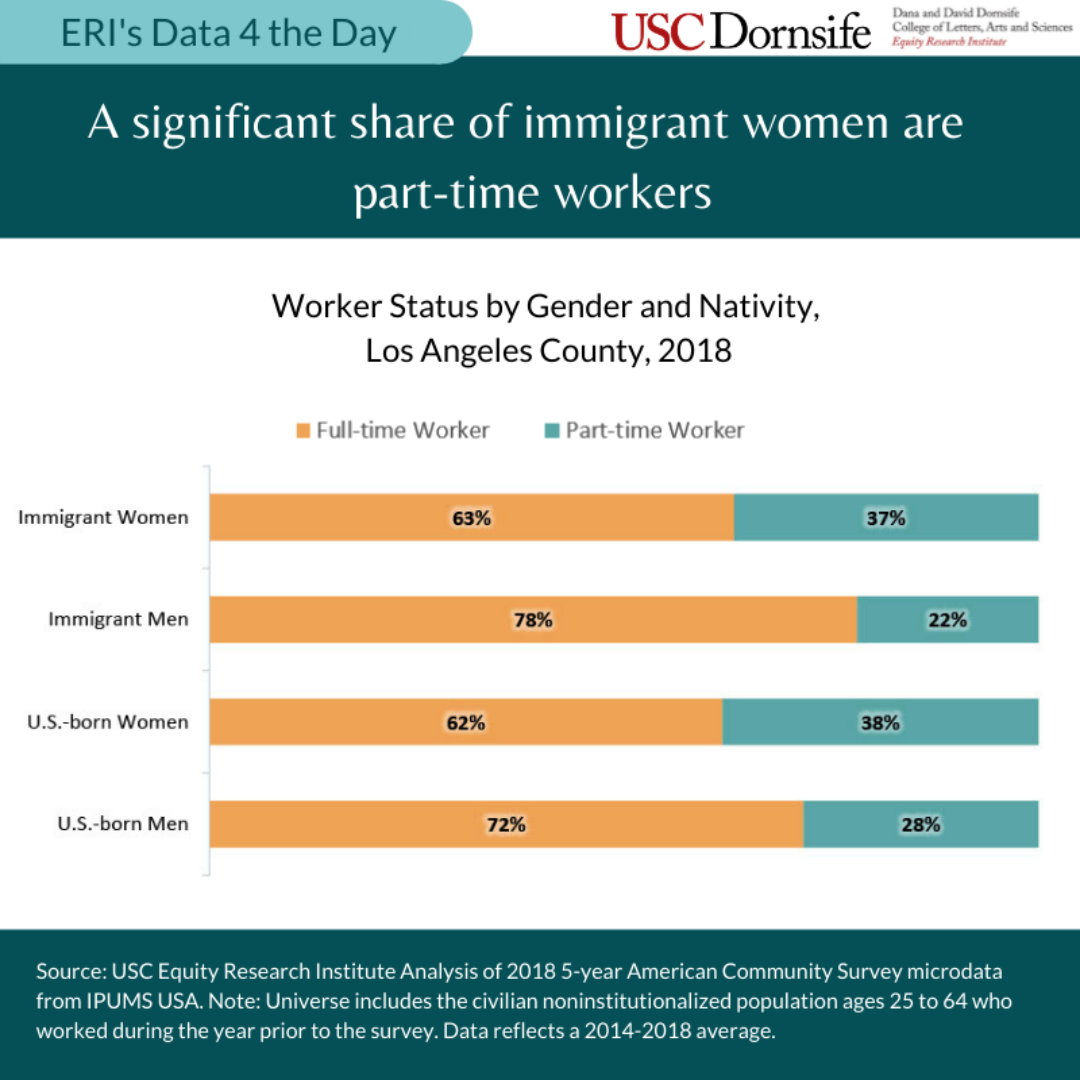
Ten Lessons for our Immigrant Future
With equity and full inclusion in mind, we encourage L.A. County institutions, organizations, elected leaders, and constituents to consider the following recommendations in our movement toward immigrant integration and inclusion in the wake of COVID-19.
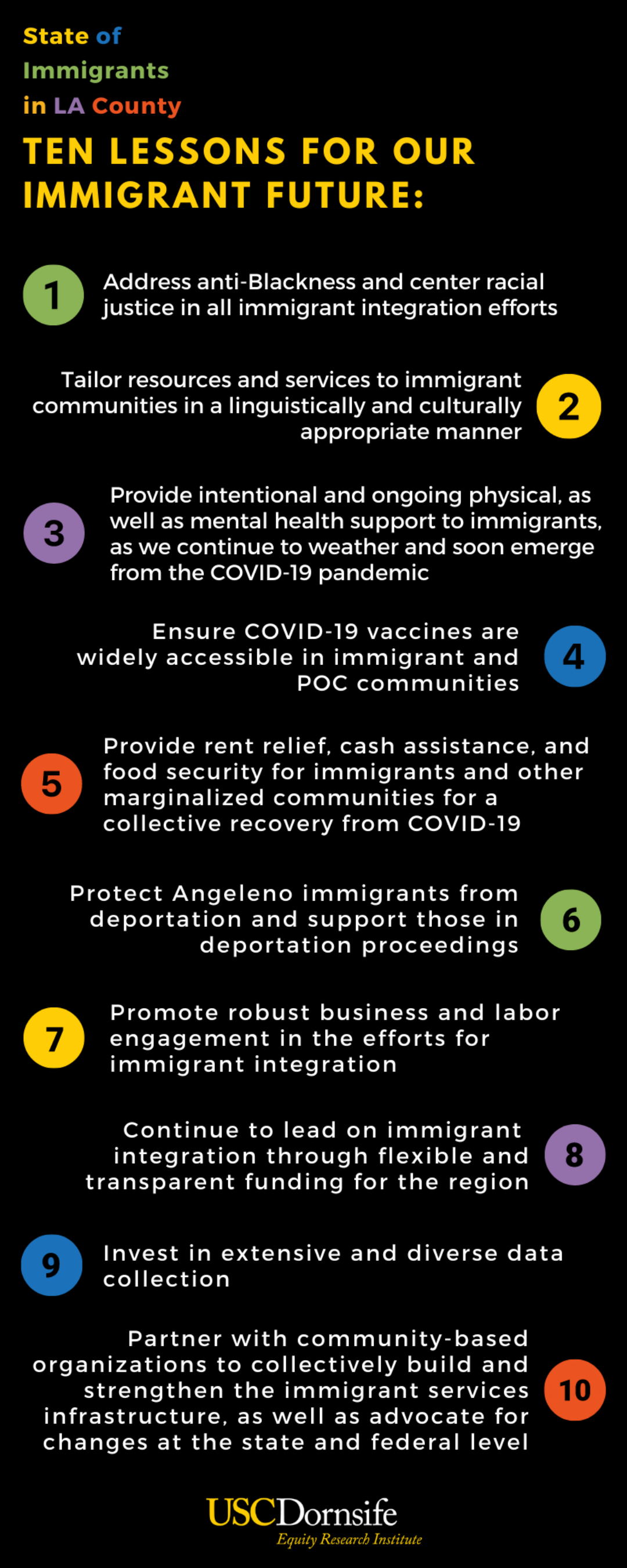
@eri_usc
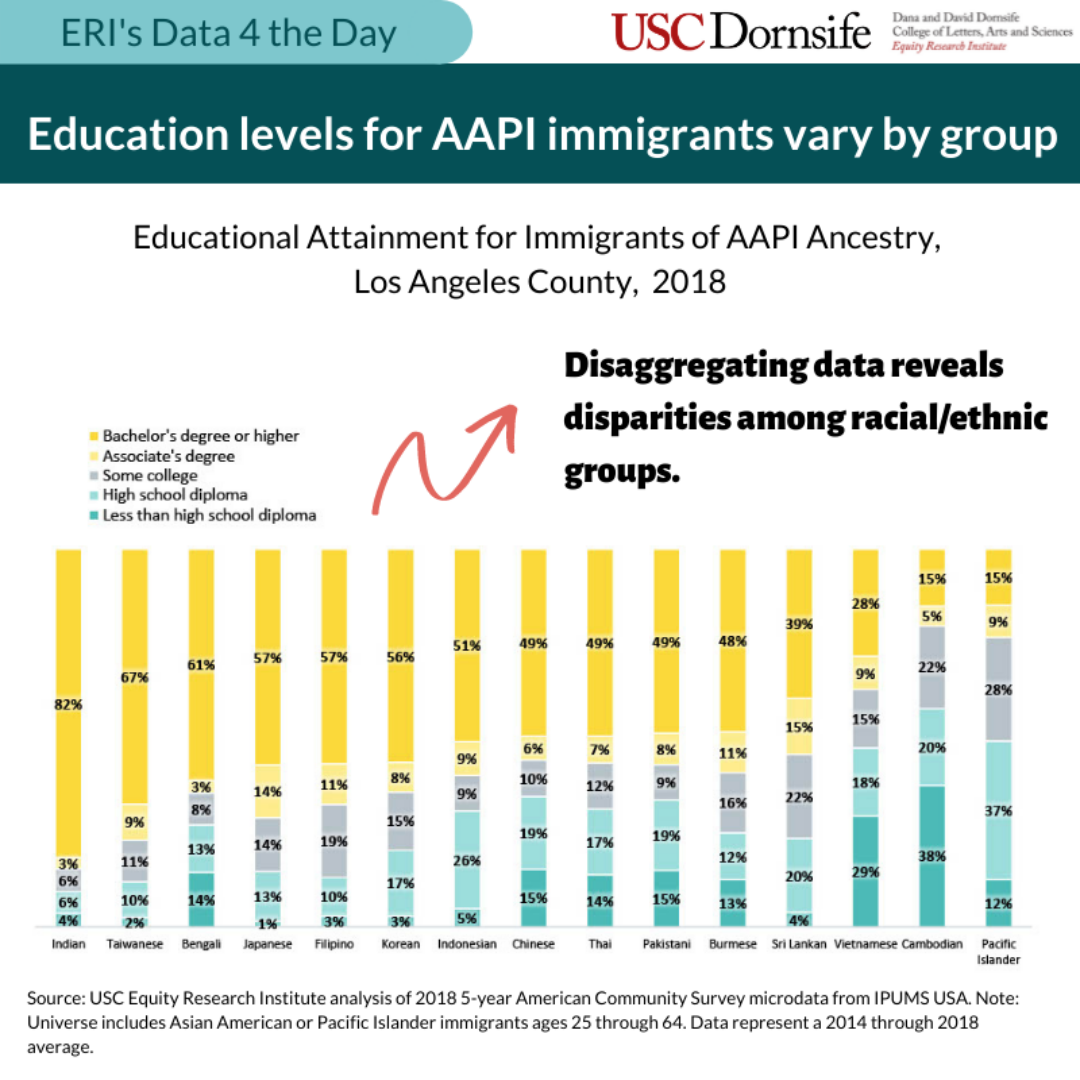
@eri_usc
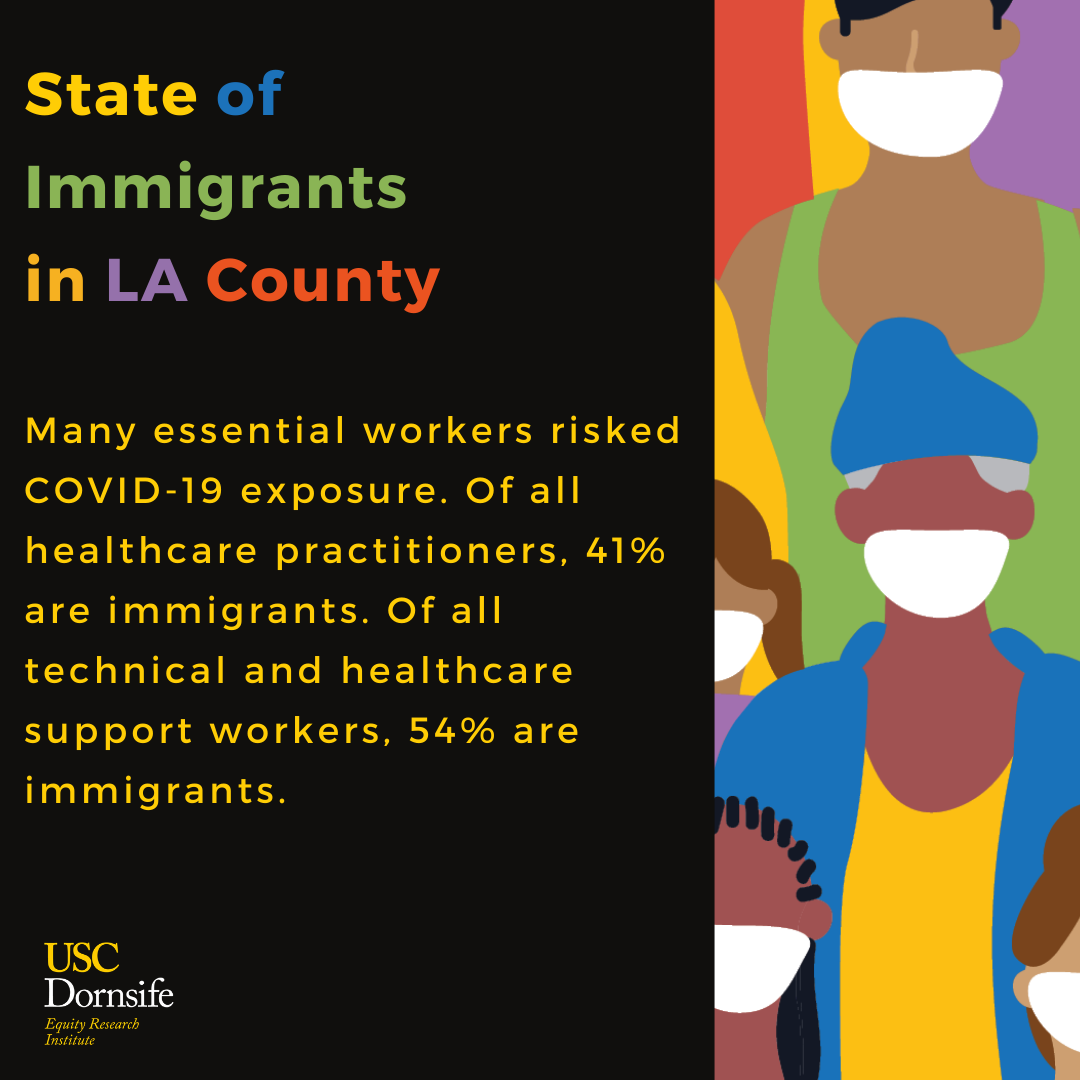
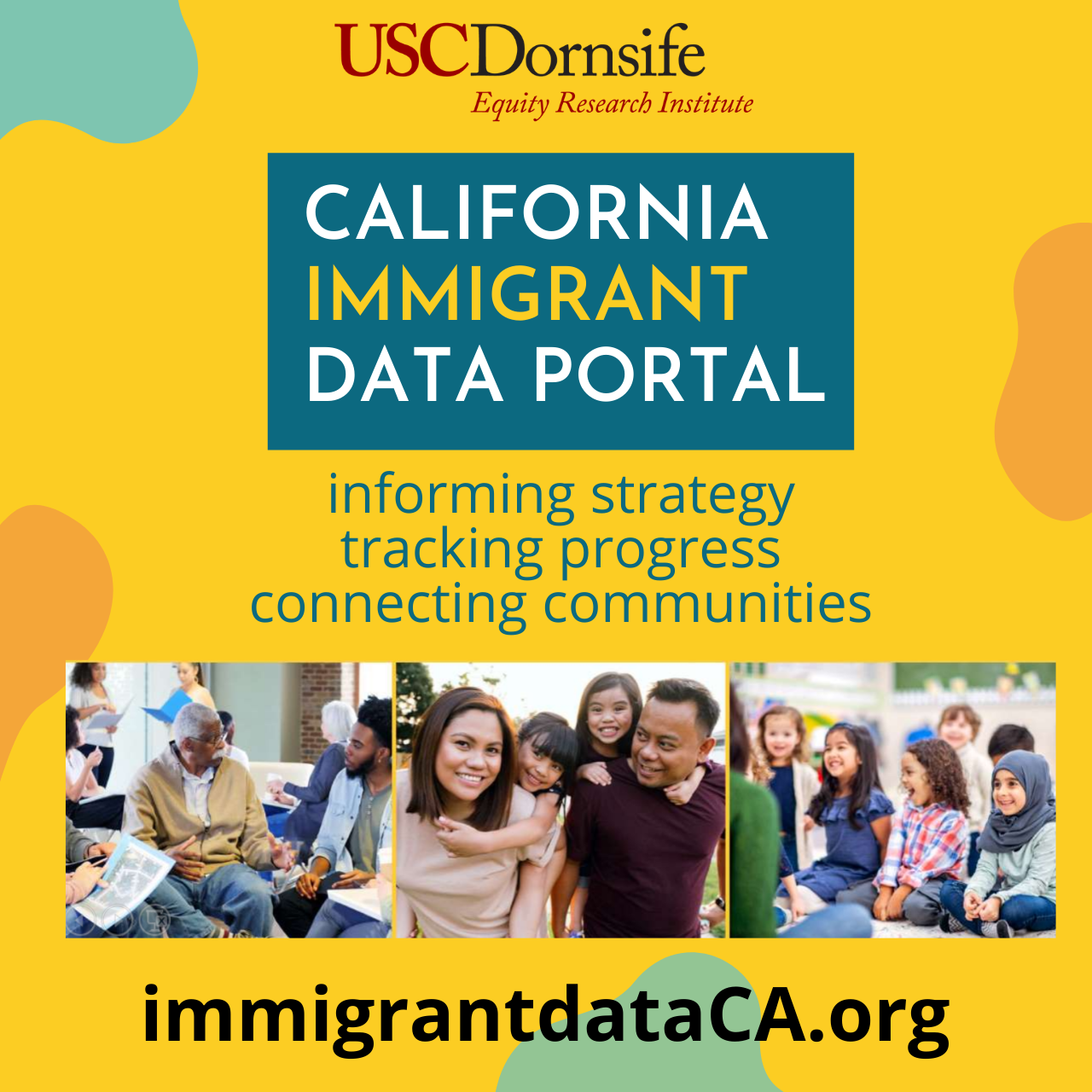 ERI’s California Immigrant Data Portal
ERI’s California Immigrant Data Portal
Some of the charts from the SOILA 2021 report can also be found in the California Immigrant Data Portal.
For more data and downloadable charts, check out our Data Portal!
